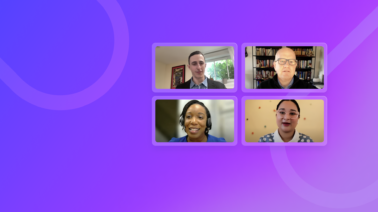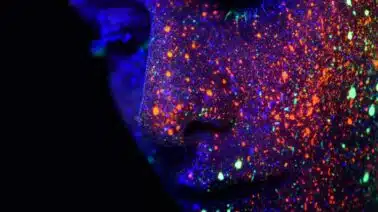***Breaking News: AlphaGo has won the first two matches!*** In this, the third in our series on the epic Go matches being played between AlphaGo (Google’s Artificial Intelligence software) and Lee Se-Dol (Current Go World Champion), we look at the history of Humans vs. Machines, and the innovations that have led us to this incredible moment in time.
For as long as humans have built things, we’ve wrestled with the implications of what we’ve built. In many cases, these philosophical and ethical wrestlings have made for great drama—think Frankenstein, or 2001: A Space Odyssey. Often, the hypothetical scenarios we envision come remarkably close to true, and the discoveries we’ve made in the fields of Artificial Intelligence and Machine Learning make clear that a “computer with a mind of its own” is not such a fantastic thing to imagine any longer.
The Triumph Of Deep Blue
Perhaps this is why we are so captivated by human vs. machine competitions, because the idea of being overcome by that which we’ve created speaks to something very deep within our collective consciousness. When IBM’s Deep Blue faced off against Garry Kasparov, the event resulted in more than three billion impressions around the world, and when IBM’s later creation Watson challenged the champions on Jeopardy, millions of viewers were glued to the proceedings.
DeepMind’s AlphaGo
Taking place right now, there is an event that, while not likely to scale the same media heights, may in fact have far greater implications when it comes to the future of “intelligent” machines. On March 9, in Seoul, South Korea, a computing system know as AlphoGo (built by researchers at DeepMind—a Google Artificial Intelligence lab) began a five-game match against Lee Se-dol, one of the very best players in the world at the ancient game of Go.
Why is this so significant?
Here is how the DeepMind team explained it in their paper Mastering the Game of Go with Deep Neural Networks and Tree Search:
The game of Go has long been viewed as the most challenging of classic games for artificial intelligence due to its enormous search space and the difficulty of evaluating board positions and moves.
Put another way, winning at Go is a kind of Holy Grail for those who strive to create machines that can “think” on their own, because success at this uniquely complex game seems to require something more than just skill, knowledge, and experience. It requires intuition. Feel. Style. Characteristics we associate with humans, not with machines.
Humans vs. Machines
There is a long history of these kinds of human vs. machine competitions. Perhaps the most fascinating storyline belongs to the world of checkers. In 1990 a computer program called Chinook inaugurated a 4-year battle with a man inarguably considered the greatest checkers player of all time: Marion Tinsley—a battle that would end only when Tinsley succumbed to cancer. In 1995, Chinook “retired,” only to resurface again in 2007, when the team behind the program announced that it had finally solved checkers; an accomplishment that required an average of 50 computers working for nearly two decades sifting through literally billions of possible positions to come up with the solution.
Other games have similar non-human nemeses. There is Maven, created by Brian Sheppard, which purportedly can beat Scrabble masters at a rate of about 60%. And Poker famously met its machine match in Polaris, an Artificial Intelligence program that cemented its stature at the Man-Machine Poker Competition in Las Vegas in 2008.
Back To The Future
Were all of this simply about machines winning games against humans, none of this would ultimately matter very much. But what we’re learning from these endeavors in fact has incredible, far-reaching implications in critical fields like healthcare, education, environmental science, finance, and more. What Machine Learning and Artificial Intelligence studies are making possible will change the course of human history as we know it, and should it prove that AlphaGo can in fact best the best at Go, we’ll have reached a milestone not thought possible just a few years ago.
Will you be tuning in to watch the future as it happens? If you haven’t yet, you might want to now, given that AlphaGo has won the first two matches!




